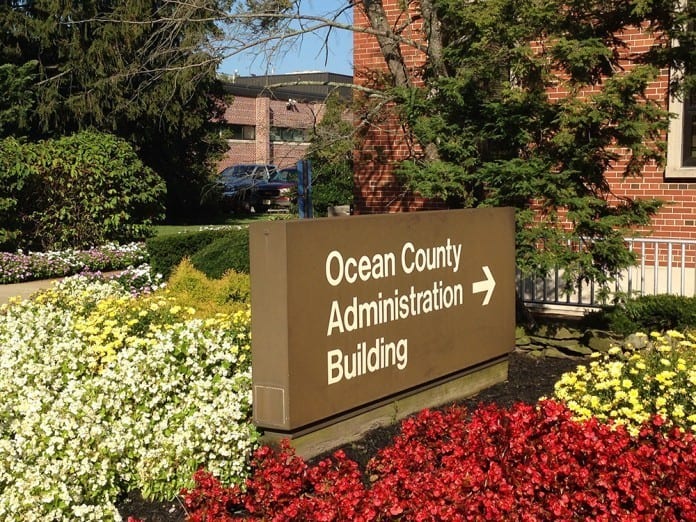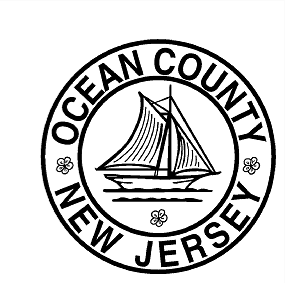
OCEAN COUNTY – Spending is up, but so is the number of new homes to share in the tax burden, so the county’s tax rate will likely go down 1/10 of a cent for 2017.
The $407,919,144 budget was introduced by the Ocean County Freeholders. It includes an increase of about $7.9 million. The tax rate will go down from 35.3 cents per $100 of assessed valuation to 35.2 cents.
“Now, this is not a big amount, and nothing to gloat about, but it is a move down, a move in the right direction,” said Freeholder John Bartlett.
 The tax base is still down $12 billion from 2008 levels, according to county figures. Tax valuation measures the entire assessments of all property in the county. This figure is up 2.78 percent, from $94.5 billion in 2016 to $97.1 billion in 2017. Some of this is replacement construction from Superstorm Sandy. Some of it is new construction. It will help the county’s tax revenue to increase by 8.3 million. So, the new tax revenue is greater than the spending increase, and therefore the tax rate goes down.
The tax base is still down $12 billion from 2008 levels, according to county figures. Tax valuation measures the entire assessments of all property in the county. This figure is up 2.78 percent, from $94.5 billion in 2016 to $97.1 billion in 2017. Some of this is replacement construction from Superstorm Sandy. Some of it is new construction. It will help the county’s tax revenue to increase by 8.3 million. So, the new tax revenue is greater than the spending increase, and therefore the tax rate goes down.
What’s in the budget
There were no big ticket items in this year’s budget, Bartlett said. The main costs come from inflation.
Most departments remained at or below a 2 percent increase. Two departments that fell out of that were the prosecutor’s office and engineering.
Between bail reform, which has increased the hours of officials in the prosecutor’s office, and the drug epidemic, that department needed more funding, he said. The prosecutor’s office increased by 3.2 percent, or about $500,000.
The engineering department saw increases due to the increased construction in the northern section of the county, he said.
The proposed budget includes 2 percent increases in the county’s contributions to Ocean County College and the Ocean County Vocational Technical School system. The college’s appropriation will be $15.2 million, up $297,000 and the vo-tech will receive $18.3 million, up $358,293.
In addition, about $25 million will be appropriated to maintain the county’s infrastructure.
“We build a budget the opposite way of most governments,” Bartlett said. “Most look at what they need and then raise taxes to get there. The county asks “What are our resources? What do we have to spend? What’s the tax rate ought to be?” Then, we take a prudent amount from surplus. Then, the department heads are given a number that they have to work within.”
It was a “model budget,” providing the things people want, while still seeing a reduction, he said.
Surplus and bonding

Bartlett said the County’s surplus in 2017 is $51.7 million. The proposed budget includes $20.2 million from surplus.
The county’s major capital projects continue to be bonded over the course of decades. The county borrows $25-30 million a year, and pays off $25-30 million in bonds every year, he said.
However, why bother borrowing when there’s money in the bank? Why pay interest on loans? “You use an amount of surplus that operations can replenish in a year,” he said. “You have to be judicious in your use of surplus. Once you spend it, it’s gone.”
Part of the surplus consideration came from bond ratings. The county has a Aaa bond rating. This is a standard set by Moody’s, an independent company that rates financial markets. The rating determines what kind of risks investors have. The county’s rating, Aaa, is the highest, which means that investors have very little risk investing in Ocean County. The benefit for investors is that they know they will get their money back. The benefit for the county is lower interest payments. In order to keep this rating, one thing the county has to do is keep surplus equal to at least 10 percent of the total budget.
“If you took more than you replace,” eventually you would have to raise taxes, he said. It allows the tax rate to be more stable, instead of dropping it one year and raising it the next. “We are not going to have a roller coaster rate.”
The other philosophy has to do with how long it takes bonds to pay off. It has to be for something that will be used for about as long as it takes to pay off. Road projects, for example, are useful for years.
“It only makes sense that the future help pay for it,” he said.
“If you paid cash, you would have to raise that money or you run out of surplus. It’s a foolish way to run a government,” he said. “I don’t like personal debt, but public debt is different.”
In related news, the tax rates for the Ocean County Library and the Health Department will be flat in 2017.
The public hearing and adoption is expected at the meeting held at 4 p.m. on April 5.






